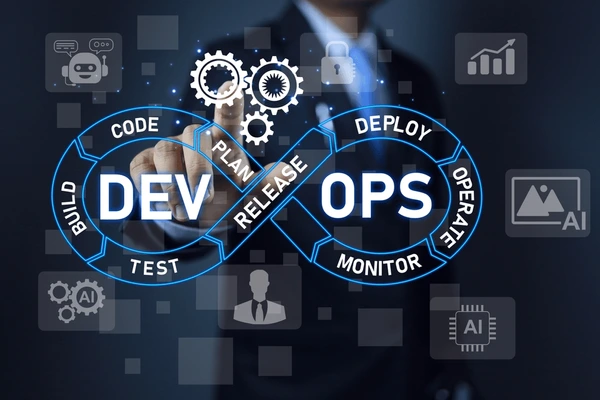
DevOps Engineer
Understanding the Role of a DevOps Engineer: The Bridge Between Development and Operations
In today's fast-paced tech world, businesses are constantly looking for ways to deliver software quickly, efficiently, and with high quality. This is where the role of a DevOps Engineer comes in. DevOps (Development and Operations) is a culture and set of practices that bring together software development and IT operations teams to shorten the software development lifecycle and improve the delivery of high-quality software.
But what exactly does a DevOps Engineer do? And why is this role so crucial for modern organizations? Let's dive into the details.
What is a DevOps Engineer?
A DevOps Engineer is responsible for ensuring that software development and IT operations are closely aligned, making it easier to build, test, and release software. They focus on automation, collaboration, and continuous improvement to streamline processes and reduce the time it takes to go from development to deployment.
The DevOps model integrates development, testing, deployment, and operations teams to ensure that each process flows smoothly and effectively. By using modern tools, automation, and infrastructure-as-code, DevOps engineers help organizations build a continuous delivery pipeline, ensuring software is always ready for release with minimal downtime or errors.
Key Responsibilities of a DevOps Engineer
-
Collaboration Between Teams
DevOps Engineers serve as the communication bridge between development and operations teams. By promoting collaboration, they ensure everyone is aligned with the same goals and objectives, reducing bottlenecks and improving efficiency. -
Automation of Development Processes
A significant part of the job is automating repetitive tasks such as software builds, testing, deployments, and infrastructure management. This leads to faster releases and fewer human errors. Tools like Jenkins, Docker, and Kubernetes are commonly used in this process. -
Continuous Integration and Continuous Deployment (CI/CD)
DevOps Engineers design and maintain CI/CD pipelines that enable frequent and reliable software updates. Continuous integration ensures code changes are automatically tested and integrated into the codebase, while continuous deployment automates the release process, allowing software updates to be deployed quickly and safely. -
Infrastructure as Code (IaC)
DevOps Engineers manage cloud infrastructure and servers through code using tools like Terraform and Ansible. This approach allows for automated provisioning, configuration, and management of infrastructure, leading to consistency and scalability. -
Monitoring and Performance Optimization
After software deployment, DevOps Engineers monitor system performance, identify potential issues, and optimize applications and infrastructure for better efficiency and scalability. Tools like Prometheus, Grafana, and ELK stack are often used to track performance metrics and logs.
Skills Required for a DevOps Engineer
To succeed in the DevOps role, engineers must possess a unique combination of technical and interpersonal skills:
- Programming/Scripting: Knowledge of languages like Python, Bash, or Ruby is essential for automating tasks and managing infrastructure.
- Version Control: Proficiency in Git allows for tracking changes and collaboration across teams.
- Automation Tools: Experience with CI/CD tools like Jenkins, GitLab, or CircleCI, and containerization tools like Docker and Kubernetes, is crucial for building efficient workflows.
- Cloud Platforms: Familiarity with cloud services like AWS, Azure, or Google Cloud is necessary for managing and deploying applications in the cloud.
- System Administration: Understanding of system configuration, networking, and server management is key to maintaining infrastructure.
- Collaboration & Communication: As a DevOps Engineer, you’ll work closely with both development and operations teams, so strong communication and teamwork skills are a must.
Why DevOps is Essential for Your Business
Incorporating DevOps practices in your organization can bring several benefits:
-
Faster Time to Market
By automating and streamlining processes, DevOps helps teams deliver software more quickly. This enables businesses to release new features and products faster, giving them a competitive edge. -
Improved Collaboration
DevOps breaks down silos between development and operations, promoting a culture of collaboration and shared responsibility. This leads to more effective problem-solving and faster resolution of issues. -
Increased Efficiency
With automation in place, DevOps eliminates repetitive manual tasks, improving productivity and reducing human error. This not only speeds up the development process but also ensures higher-quality releases. -
Scalability and Flexibility
The use of cloud-based infrastructure and containerization allows businesses to scale their applications up or down with ease, ensuring that they can handle changing demands and grow as needed. -
Better Security
DevOps doesn’t just focus on speed; it also emphasizes security at every stage of the development process (DevSecOps). This proactive approach helps identify and fix vulnerabilities early, reducing security risks.
DevOps at Sharaa Group: Transforming Your Digital Landscape
At Sharaa Group, we understand the importance of leveraging cutting-edge technologies to drive business success. Our DevOps solutions empower your team to move faster, innovate more, and deploy software with confidence. Whether you’re looking to streamline your development processes or improve your infrastructure management, our expert DevOps engineers are here to help you achieve your goals.
We offer customized DevOps consulting to help your business automate, integrate, and optimize your software development lifecycle. Our team works closely with you to understand your needs and implement a tailored strategy that ensures faster delivery, increased reliability, and enhanced security.
Conclusion
The role of a DevOps Engineer is crucial in today's tech-driven world. By bridging the gap between development and operations, DevOps engineers help organizations deliver software faster, with better quality and reliability. Whether you’re aiming to accelerate your development cycles or streamline your infrastructure, adopting a DevOps culture will provide your business with a competitive edge.
If you’re interested in learning more about how DevOps can transform your business, contact Sharaa Group today. Let’s work together to drive innovation and success!

